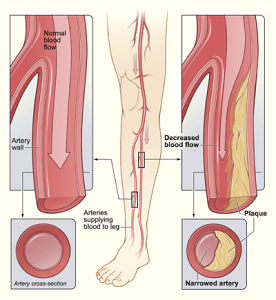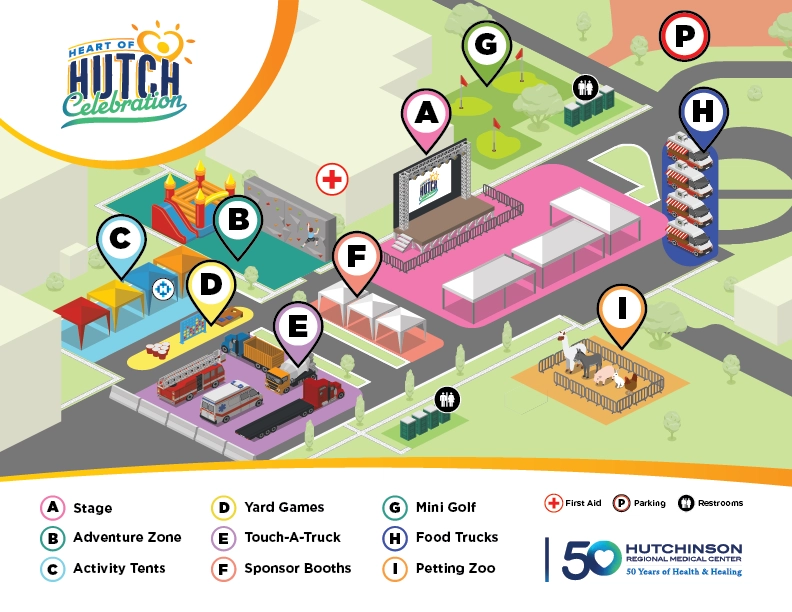Medical Center » Services » Cardiology » Peripheral Arterial Disease (PAD)
 Peripheral arterial disease, or PAD, affects 8.5 million Americans, and often goes underdiagnosed and undertreated. PAD develops when arteries become clogged with plaque and fatty deposits that limit blood flow to legs. People with PAD have cramps and fatigue most often in their buttocks, thighs, and/or calves that gets better when they rest. They can also have sores or ulcers on their lower legs and feet that heal poorly.
Peripheral arterial disease, or PAD, affects 8.5 million Americans, and often goes underdiagnosed and undertreated. PAD develops when arteries become clogged with plaque and fatty deposits that limit blood flow to legs. People with PAD have cramps and fatigue most often in their buttocks, thighs, and/or calves that gets better when they rest. They can also have sores or ulcers on their lower legs and feet that heal poorly.
If diagnosed in the early stages, PAD can be treated with appropriate lifestyle modifications and drug therapies. If blockages are more severe, minimally invasive revascularization technologies are needed, such as atherectomy and angioplasty. Atherectomy is a procedure that utilizes a catheter to remove plaque from blood vessels under local anesthesia. Angioplasty is “ballooning” the blockages, sometimes with medicated balloons that help keep blockages from returning. However, if the disease isn’t diagnosed until critical limb ischemia occurs, therapy is more costly and requires more recovery time, such as bypass surgery. If the disease goes untreated, the limb may not be salvaged and the patient must undergo amputation.
Our cardiologists at the Heart & Vascular Center have a single minded commitment to treating PAD and helping patients return to their everyday lives. They are trained in the latest cutting edge technologies. From drug eluting balloons and stenting to directional and orbital atherectomy, we are able make huge improvements in our patients’ quality of life.
Do you or a loved one suffer from the symptoms of peripheral artery disease, such as pain leg when walking or wounds that don’t heal properly? If so, please contact your physician. The sooner you get diagnosed, the sooner you can begin treatment, and get back to living life again.
We have received your scholarship application. Our team will review your submission, and we will contact you about next steps.
